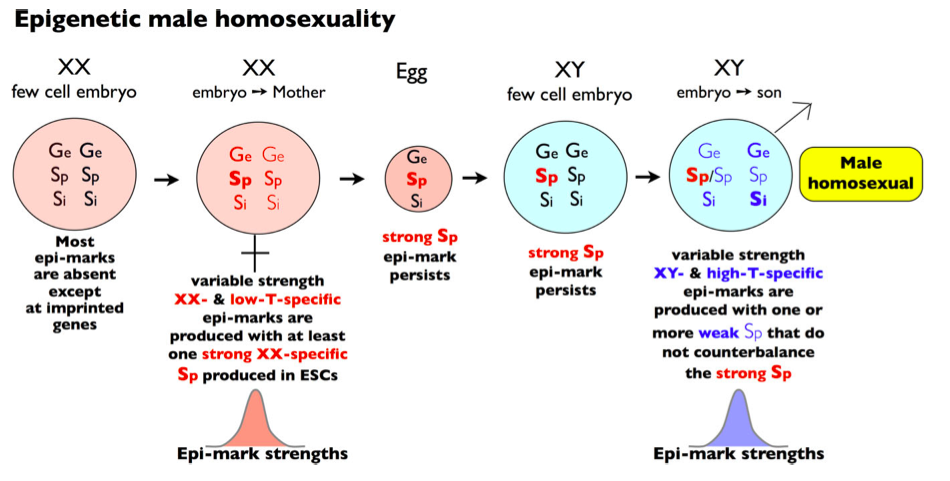
Subscripted symbols represent one or more epi-marks that influence sensitivity to androgens by the developing genitalia (Ge) or sexually dimorphic brain regions influencing sexual partner preference (Sp) or sexual identity (Si). Lighter symbols represent weaker than average epi-marks and bolder symbols represent stronger than average epi-marks. For more detail, see the full figure in BioEssays.
In a new article released today in BioEssays, the authors that brought the widely circulated article on the epigenetic underpinnings of homosexuality last year provide a new testing protocol for the model.
Last year’s study, published in The Quarterly Review of Biology, provided a mathematical model predicting that sex-specific epi-marks, which are laid down during embryonic stem cell development, can lead to homosexuality when they escape erasure between generations and are transmitted from father to daughter or mother to son. The model predicted that these sex-specific epi-marks can cause reversed effects, such as the feminization of some traits in sons, such as sexual preference, and similarly a partial masculinization of daughters.
Today’s article describes five testable predictions for the model, and suggests that epigenetic profiles of human stem cells can offer the best way to test models of epigenetic-based homosexuality.
The work was conducted by William Rice, Urban Friberg and NIMBioS Associate Director for Scientific Activities Sergey Gavrilets.
Citation: Rice WR, Friberg U, Gavrilets S. 2013. Homosexuality via canalized sexual development: A testing protocol for a new epigenetic model. BioEssays: 35. Published online 19 Jul 2013. DOI 10.1002/bies201200033
